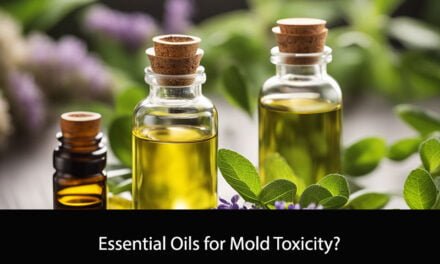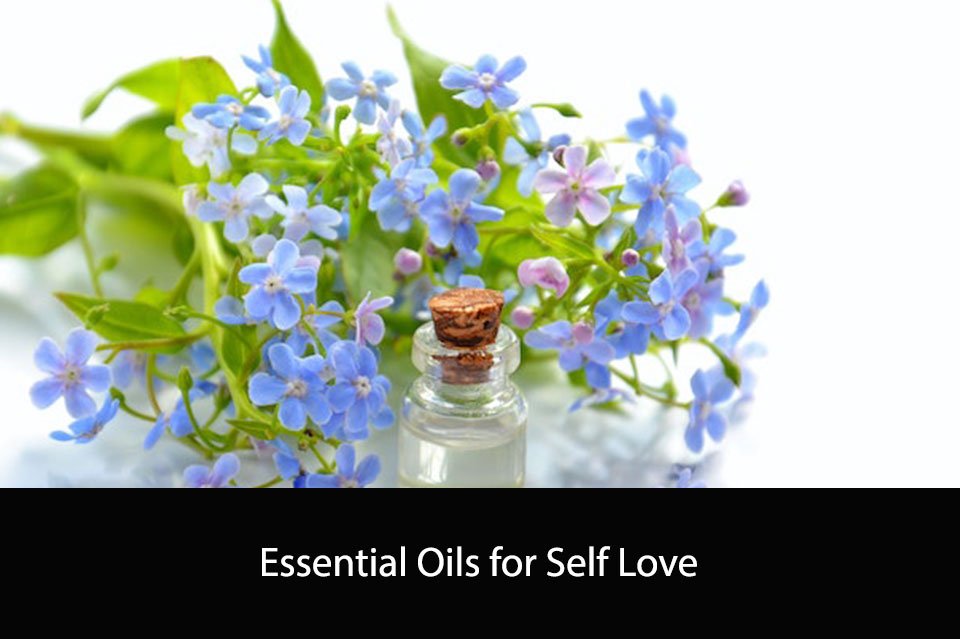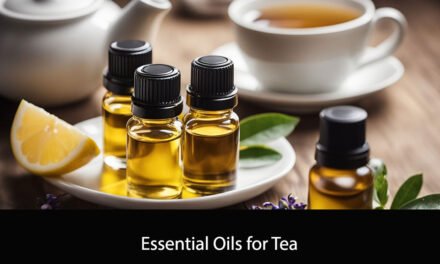Essential oils have been used for centuries for their therapeutic properties. They are highly concentrated plant extracts that can be used for a variety of purposes, including detoxification. Detoxing is the process of eliminating toxins from the body, and essential oils can be a powerful tool in this process.
Essential oils can be used in a number of ways to support detoxification. They can be used topically, inhaled, or ingested. When used topically, essential oils can be applied to the skin or added to a bath to help stimulate the lymphatic system, which is responsible for removing toxins from the body. When inhaled, essential oils can help to purify the air and support respiratory health. When ingested, essential oils can help to support digestion and liver function, both of which are important for detoxification.
In this article, we will explore some of the best essential oils for detoxing and how to use them effectively. We will also discuss some safety considerations and precautions to keep in mind when using essential oils for detoxification purposes. Whether you are looking to support your body’s natural detoxification process or are looking for ways to improve your overall health and well-being, essential oils can be a valuable tool in your wellness toolkit.
Understanding Essential Oils

Essential oils are concentrated plant extracts that are believed to have various therapeutic properties. These oils are obtained through a process of distillation or cold pressing, which preserves the volatile compounds present in the plant.
Each essential oil has a unique chemical composition, which determines its scent and therapeutic properties. For example, lavender essential oil is known for its calming and relaxing properties, while peppermint essential oil is known for its invigorating and energizing properties.
When it comes to detoxing, essential oils are believed to support the body’s natural detoxification processes by stimulating circulation, promoting lymphatic drainage, and supporting liver and kidney function. Some essential oils are also believed to have antimicrobial properties, which can help eliminate harmful bacteria and toxins from the body.
It’s important to note that essential oils should always be used with caution, as they are highly concentrated and can cause skin irritation or other adverse effects if not used properly. It’s also important to purchase high-quality essential oils from reputable sources, as some oils on the market may be adulterated or of poor quality.
Overall, essential oils can be a valuable tool for supporting the body’s natural detoxification processes, but they should be used under the guidance of a qualified healthcare practitioner.
Detoxification Basics
Essential oils are a great natural way to support the body’s natural detoxification process. Detoxification is the process of removing harmful toxins from the body. The liver, kidneys, and lymphatic system are responsible for removing toxins from the body.
To support the body’s natural detoxification process, it is important to eat a healthy diet, exercise regularly, and stay hydrated. Essential oils can also be used to support the body’s natural detoxification process.
Some essential oils that are great for detoxification include:
- Lemon: Lemon essential oil is a great natural cleanser. It can help to cleanse the liver and support the body’s natural detoxification process.
- Peppermint: Peppermint essential oil can help to support the digestive system and promote healthy bowel movements.
- Grapefruit: Grapefruit essential oil can help to stimulate the lymphatic system and promote healthy circulation.
When using essential oils for detoxification, it is important to use high-quality, pure essential oils. It is also important to dilute essential oils with a carrier oil before applying them to the skin.
Incorporating essential oils into your daily routine can be a great way to support the body’s natural detoxification process. However, it is important to remember that essential oils should not be used as a substitute for medical treatment. If you have any concerns about your health, it is important to consult with a healthcare professional.
Best Essential Oils for Detoxing

When it comes to detoxing, essential oils can be a powerful tool to help support the body’s natural cleansing processes. Here are some of the best essential oils for detoxing:
Lemon
Lemon essential oil is a popular choice for detoxing due to its ability to support liver and kidney function. It has a fresh, citrusy scent that can help boost mood and energy levels while also promoting a sense of clarity and focus. Lemon essential oil can be added to a diffuser, used in a massage oil, or added to a warm bath for a refreshing and invigorating experience.
Peppermint
Peppermint essential oil is another great choice for detoxing, particularly for digestive support. It can help relieve bloating, gas, and other digestive discomforts while also promoting healthy bowel movements. Peppermint essential oil can be used topically, inhaled, or added to a warm bath for a soothing and refreshing experience.
Ginger
Ginger essential oil is well-known for its ability to support healthy digestion and relieve nausea. It can also help stimulate circulation and promote healthy sweating, which can aid in the body’s natural detoxification processes. Ginger essential oil can be added to a diffuser, used in a massage oil, or added to a warm bath for a warming and comforting experience.
Grapefruit
Grapefruit essential oil is a great choice for detoxing due to its ability to support healthy lymphatic function. It can help stimulate lymphatic drainage and promote healthy circulation, which can aid in the body’s natural detoxification processes. Grapefruit essential oil can be added to a diffuser, used in a massage oil, or added to a warm bath for a refreshing and uplifting experience.
Overall, these essential oils can be a powerful tool to support the body’s natural detoxification processes. However, it’s important to remember that essential oils should be used with caution and under the guidance of a qualified healthcare professional.
Methods of Using Essential Oils for Detox
When it comes to using essential oils for detoxing, there are three main methods: topical application, aromatherapy, and ingestion. Each method has its own benefits and considerations.
Topical Application
Topical application involves applying essential oils directly to the skin. This method is great for targeting specific areas of the body and can be used in massage or bath blends. Some popular oils for topical application include grapefruit, lemon, and juniper berry.
When using essential oils topically, it’s important to dilute them with a carrier oil to prevent skin irritation. A common dilution ratio is 1-2 drops of essential oil per teaspoon of carrier oil. Always do a patch test before using a new oil and avoid applying oils to sensitive areas such as the eyes or mucous membranes.
Aromatherapy
Aromatherapy involves diffusing essential oils into the air to create a therapeutic atmosphere. This method is great for promoting relaxation and reducing stress. Some popular oils for aromatherapy include lavender, peppermint, and eucalyptus.
When using essential oils for aromatherapy, it’s important to use a high-quality diffuser and follow the manufacturer’s instructions. Avoid diffusing oils for extended periods of time and always use in a well-ventilated area.
Ingestion
Ingesting essential oils involves adding them to food or beverages. This method is great for promoting digestive health and can be used in cooking or as a dietary supplement. Some popular oils for ingestion include ginger, cinnamon, and lemon.
When ingesting essential oils, it’s important to use a high-quality oil that is safe for consumption. Not all essential oils are safe to ingest, so always do your research and consult with a healthcare professional before using oils for internal use. It’s also important to use oils in moderation and follow recommended dosages.
Overall, using essential oils for detoxing can be a safe and effective way to support overall health and well-being. By using these methods of application, you can incorporate essential oils into your daily routine and reap the benefits of their natural properties.
Safety and Precautions
When using essential oils for detoxing, it’s important to take safety precautions to avoid any negative side effects. Here are some guidelines to follow:
Dilution Guidelines
Essential oils are highly concentrated and should be diluted before use. We recommend using a carrier oil such as coconut or almond oil to dilute the essential oil. The general rule of thumb is to use a 2% dilution rate, which means adding 12 drops of essential oil to 1 ounce of carrier oil. However, some oils may require a higher or lower dilution rate, so it’s important to check the specific guidelines for each oil.
Possible Side Effects
While essential oils are generally safe when used properly, they can cause side effects in some people. Some possible side effects include skin irritation, allergic reactions, and respiratory problems. It’s important to do a patch test before using any new oil and to discontinue use if any negative side effects occur.
Interactions and Contraindications
Essential oils can interact with certain medications and medical conditions. For example, some oils can increase blood pressure or cause contractions in pregnant women. It’s important to consult with a healthcare professional before using essential oils if you have any medical conditions or are taking any medications.
In summary, essential oils can be a great tool for detoxing, but it’s important to use them safely and responsibly. Always follow dilution guidelines, watch for possible side effects, and consult with a healthcare professional if you have any concerns.
Creating a Detox Blend

When it comes to creating a detox blend with essential oils, it’s important to choose oils that have properties that can help support the body’s natural detoxification process. Here are some essential oils that we recommend:
- Lemon: Known for its cleansing and purifying properties, lemon essential oil can help support the liver and kidneys in eliminating toxins from the body.
- Peppermint: Peppermint essential oil has a cooling and refreshing effect that can help stimulate digestion and support the body’s natural detoxification process.
- Grapefruit: Grapefruit essential oil is a natural diuretic that can help flush out excess fluids and toxins from the body.
- Juniper Berry: Juniper berry essential oil has detoxifying and purifying properties that can help support the body’s natural elimination processes.
To create a detox blend, simply combine a few drops of each essential oil in a diffuser or mix them with a carrier oil and apply topically. It’s important to dilute essential oils with a carrier oil before applying them to the skin to avoid irritation.
When using essential oils for detoxing, it’s important to remember that they should be used as a complementary therapy and not as a replacement for medical treatment. Always consult with a healthcare professional before using essential oils, especially if you have a medical condition or are taking medication.
Detoxing Bath Recipes
Detoxing baths are a great way to relax and rejuvenate while also eliminating toxins from the body. Here are some essential oil blends that you can add to your bath for a detoxifying effect:
- Epsom Salt and Lemon Oil Bath: Mix 1 cup of Epsom salt with 10 drops of lemon essential oil. Add to your bath and soak for 20 minutes. This bath is great for removing toxins and brightening your skin.
- Ginger and Peppermint Bath: Mix 1/2 cup of baking soda, 1/4 cup of fresh ginger juice, and 10 drops of peppermint essential oil. Add to your bath and soak for 30 minutes. This bath is great for reducing inflammation and aiding digestion.
- Lavender and Rosemary Bath: Mix 1 cup of sea salt, 10 drops of lavender essential oil, and 5 drops of rosemary essential oil. Add to your bath and soak for 20 minutes. This bath is great for reducing stress and promoting relaxation.
Remember to always dilute essential oils in a carrier oil before adding them to your bath. Also, be sure to drink plenty of water before and after your bath to help flush out toxins.
Daily Detox Routine
We recommend incorporating essential oils into your daily routine for a gentle and effective detox. Here are some ways to use essential oils for daily detox:
1. Lemon Water
Start your day with a glass of warm water infused with a drop of lemon essential oil. Lemon oil is known for its detoxifying properties and can help stimulate your digestive system and flush out toxins.
2. Dry Brushing
Before showering, use a dry brush to stimulate your lymphatic system and promote detoxification. Add a drop of grapefruit essential oil to your brush for an extra boost.
3. Detox Bath
Add a few drops of lavender and eucalyptus essential oils to your bath for a relaxing and detoxifying soak. These oils can help soothe sore muscles and promote deep relaxation while flushing out toxins.
4. Inhale Essential Oils
Inhaling essential oils can help support your respiratory system and promote detoxification. Add a drop of peppermint or eucalyptus essential oil to a tissue and inhale deeply throughout the day.
Incorporating these simple steps into your daily routine can help support your body’s natural detoxification process and leave you feeling refreshed and rejuvenated.
Monitoring Detox Progress
Tracking your progress during a detox is essential to ensure that you are achieving your goals and staying safe. Here are some ways to monitor your detox progress:
Physical symptoms
Pay attention to any physical symptoms you experience during the detox process. Common symptoms include headaches, fatigue, and digestive issues. These symptoms may indicate that your body is eliminating toxins, but they can also be a sign that you need to adjust your detox regimen. Keep a journal of your symptoms and discuss them with your healthcare provider if they persist or worsen.
Body measurements
Taking measurements of your body before and after the detox can give you a clear idea of the changes that have occurred. You can measure your weight, waist circumference, and body fat percentage. Keep in mind that weight loss during a detox is often temporary, and it’s more important to focus on overall health improvements.
Lab tests
Lab tests can provide objective data about your detox progress. You can get a blood test to check your liver function, kidney function, and electrolyte levels. You can also get a urine test to check for the presence of toxins. Discuss with your healthcare provider which tests are appropriate for you.
Psychological changes
Detoxing can also have psychological benefits, such as improved mood and mental clarity. Pay attention to any changes in your mood, energy levels, and overall sense of well-being. Keep a journal of your thoughts and feelings throughout the detox process.
By monitoring your detox progress, you can ensure that you are achieving your goals and staying safe. Remember to consult with your healthcare provider before starting any detox regimen.
Frequently Asked Questions

What are the top essential oils recommended for body detoxification?
When it comes to body detoxification, some of the most effective essential oils include lemon, grapefruit, peppermint, ginger, and juniper berry. These oils can help to stimulate the lymphatic system and support the liver in removing toxins from the body.
How can essential oils aid in the removal of airborne toxins?
Essential oils can be diffused into the air to help purify the environment and remove airborne toxins. Oils like eucalyptus, tea tree, and lavender have powerful antimicrobial properties that can help to kill bacteria and viruses in the air.
Which essential oils are effective for detoxifying after anesthesia?
After anesthesia, the body can be left with a buildup of toxins that need to be eliminated. Essential oils like rosemary, peppermint, and lemon can help to stimulate the liver and aid in the removal of these toxins.
Can essential oils be used to cleanse the blood, and if so, which ones?
Yes, some essential oils can help to cleanse the blood and support overall blood health. Oils like cypress, helichrysum, and frankincense can help to improve circulation and support the body’s natural detoxification processes.
What are the benefits of adding essential oils to detox water?
Adding essential oils to detox water can help to enhance the flavor and provide additional health benefits. Oils like lemon, grapefruit, and peppermint can help to support digestion and aid in the removal of toxins from the body.
How do essential oils support liver cleansing in the context of brands like Young Living?
Young Living offers a range of essential oils that can support liver health and aid in the body’s natural detoxification processes. Oils like lemon, grapefruit, and peppermint are included in their Purification blend, which is specifically designed to support detoxification. Additionally, their JuvaCleanse blend contains oils like helichrysum and celery seed, which can help to support liver function.





